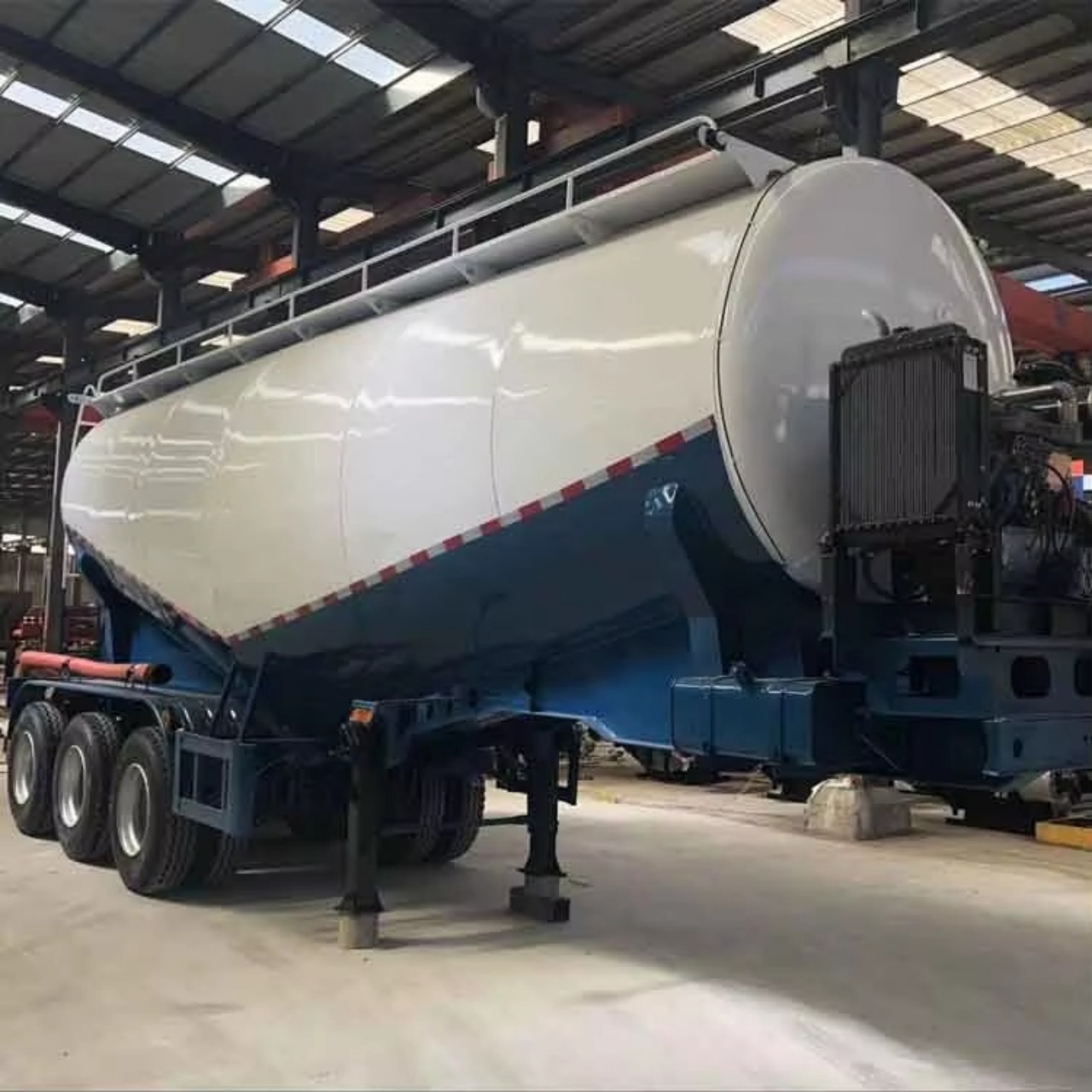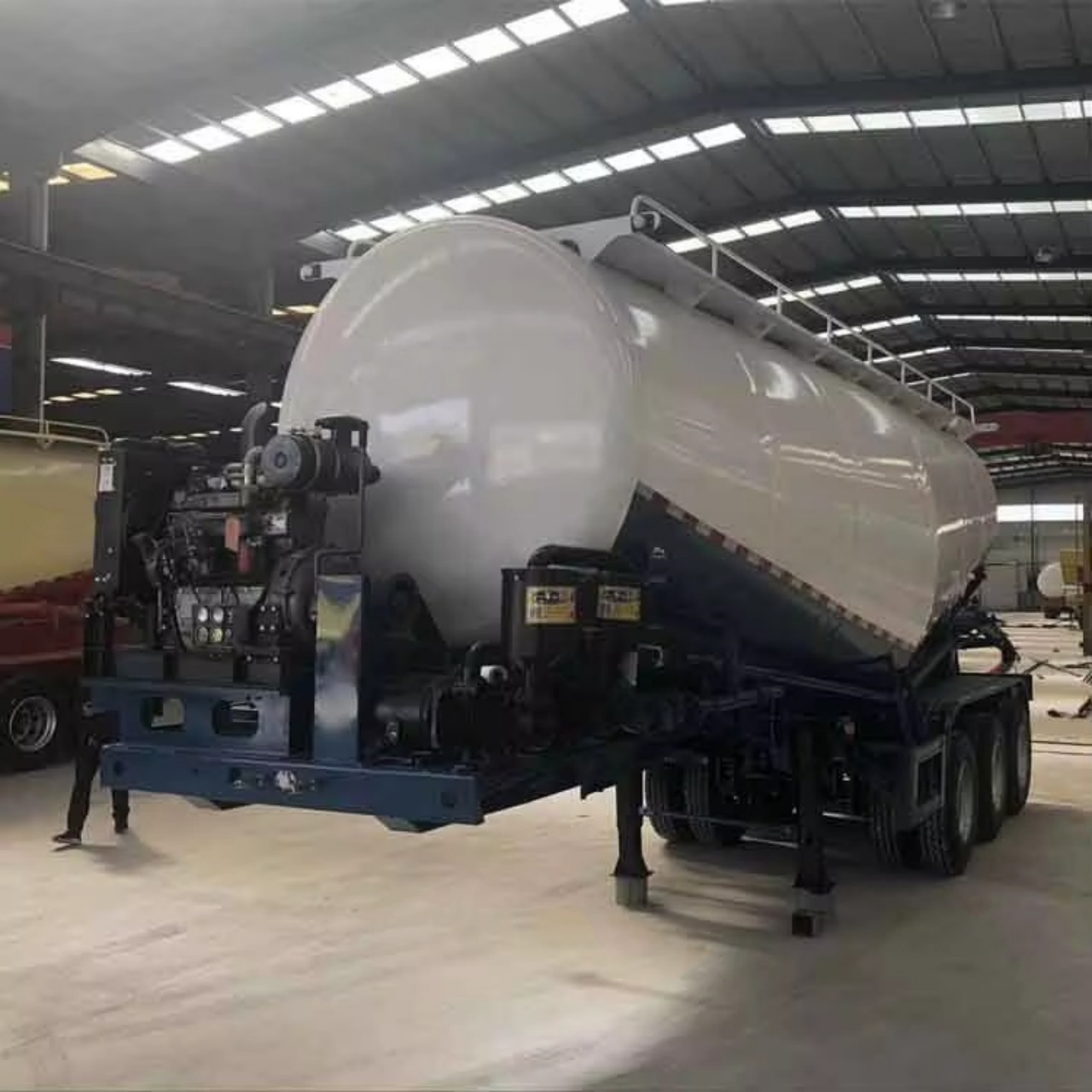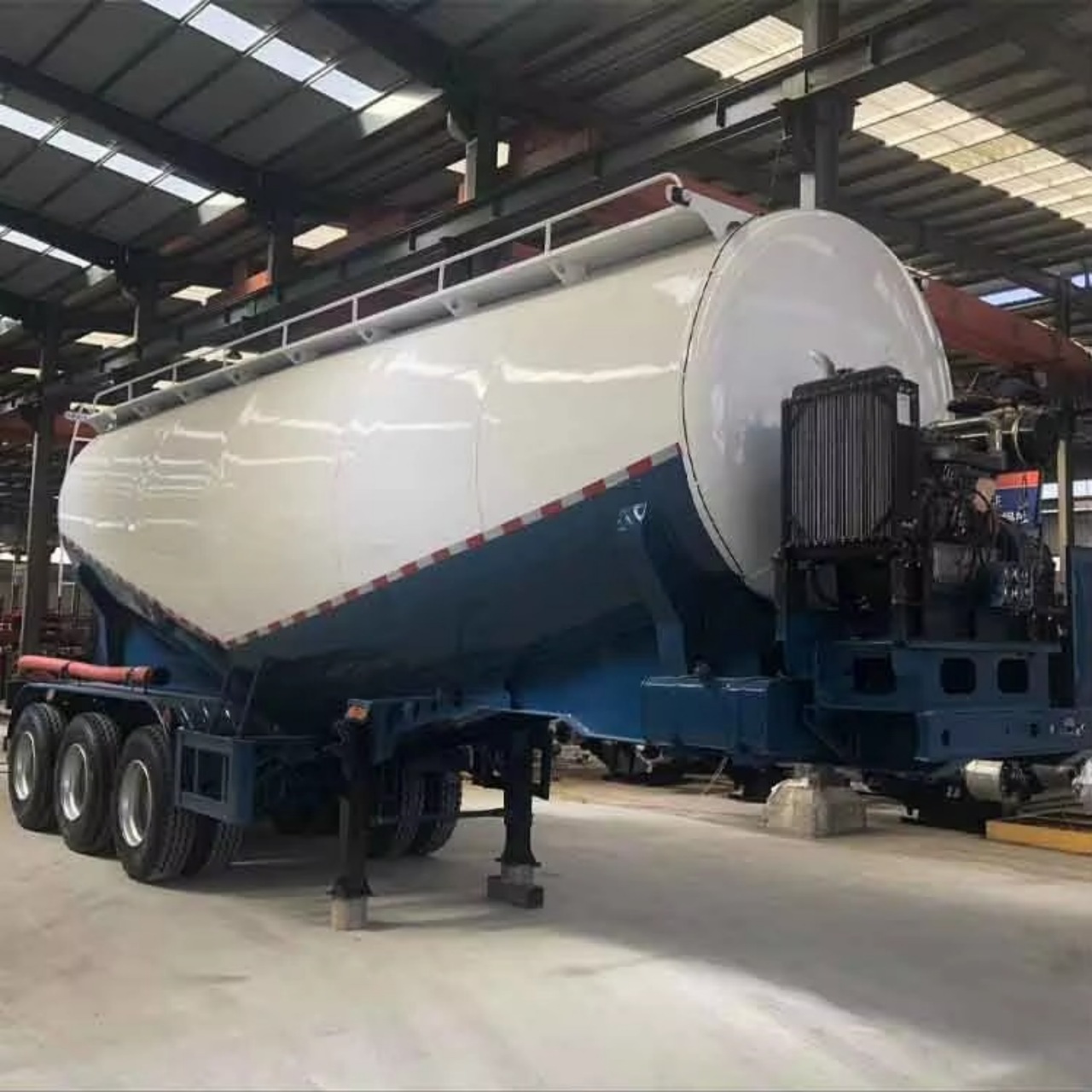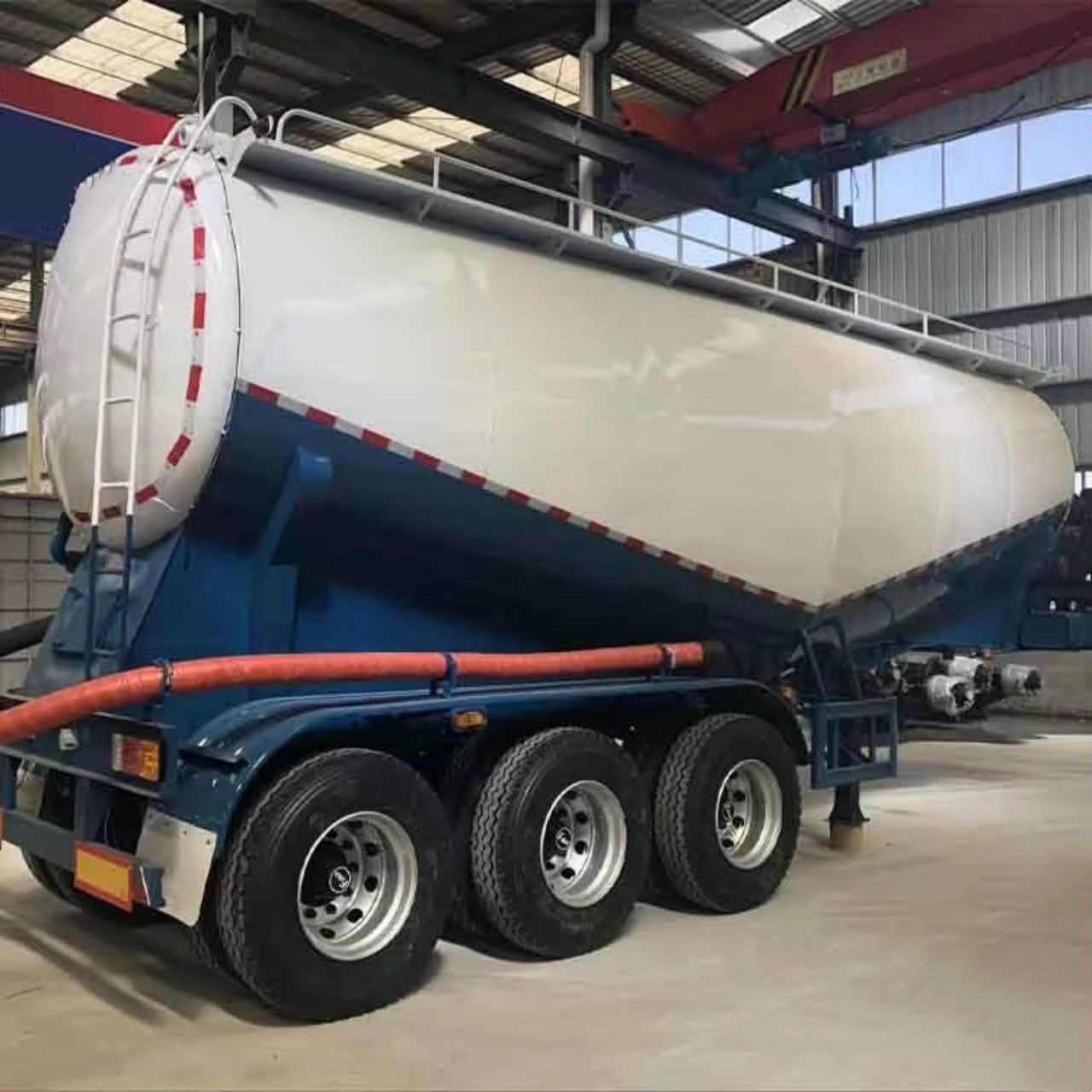In the world of bulk transportation, pneumatic trailers—also known as dry bulk trailers or pneumatic tankers—are critical for moving dry, powdery, or granular materials safely and efficiently. Unlike liquid tankers or flatbeds, pneumatic trailers are specifically designed to transport dry bulk commodities under pressure. With their sealed tanks, powerful air compressors, and cone-shaped hoppers, these trailers are a staple in industries ranging from agriculture and construction to food processing and manufacturing.
But what exactly can be hauled in a pneumatic trailer? In this article, we’ll explore the various types of materials these trailers carry, how they work, and why they’re the go-to choice for transporting certain products.
Understanding Pneumatic Trailers
Before diving into the specifics of what they carry, it’s important to understand how pneumatic trailers operate. These trailers are typically composed of one or more sealed tanks shaped like inverted cones. The design allows for gravity-assisted unloading when combined with pressurized air from an onboard or external compressor. The compressed air “fluidizes” the material, helping it flow smoothly out of the trailer and through hoses into silos, storage containers, or processing equipment.
There are 2 primary types of pneumatic trailers:
- Standard pressure (low-pressure) trailers: Used for materials that flow easily.
- High-pressure trailers: Designed for denser or more stubborn materials.
The capacity of a typical pneumatic trailer ranges between 1,000 and 1,600 cubic feet, and they are built to handle loads up to 80,000 pounds (combined truck and trailer).
Materials Hauled in Pneumatic Trailers
1. Cement and Fly Ash
One of the most common uses for pneumatic trailers is transporting cement. Cement powder must be kept dry during transport, making the sealed and moisture-resistant design of pneumatic trailers ideal. Similarly, fly ash—a byproduct of coal combustion used in cement and concrete—requires the same level of protection from the elements.
Construction companies often rely on pneumatic trailers to deliver cement and fly ash to mixing plants or job sites, ensuring a consistent and uncontaminated supply.
2. Sand and Silica
Fracking sand, also known as proppant, is essential in the oil and gas industry. It’s used to keep fractures in rock formations open during hydraulic fracturing. Because this sand must be delivered in large volumes and kept dry, pneumatic trailers are the perfect solution.
Silica, a finer material than fracking sand, is also transported in these trailers. It’s used in manufacturing processes, glass production, and even electronics.
3. Plastic Pellets and Resin Beads
Plastic manufacturing relies heavily on the transportation of plastic pellets and resin beads. These small, lightweight materials are perfect for pneumatic trailers because they need to be delivered in bulk, free of contamination or moisture. Industries use these pellets to mold everything from bottles to automotive parts.
Some trailers are even specially designed with anti-static coatings or grounding features to prevent static buildup, which can be a risk when transporting certain types of resin.
4. Dry Chemicals
Various industrial chemicals in powder or granular form are transported using pneumatic trailers. Examples include:
- Sodium bicarbonate (baking soda)
- Sodium sulfate
- Calcium carbonate
- Potassium chloride
These chemicals are used in numerous industries, from water treatment to agriculture and pharmaceuticals. Transporting them in sealed pneumatic tanks ensures product purity and regulatory compliance.
5. Grain, Flour, and Other Food-Grade Products
Pneumatic trailers are commonly used in the agricultural and food processing sectors as well. When properly cleaned and certified for food-grade use, they can haul:
- Grain
- Flour
- Sugar
- Salt
- Cornmeal
- Starch
Food-grade pneumatic trailers must adhere to strict sanitation standards to prevent contamination, often including stainless steel tanks and smooth interior surfaces for easy cleaning.
6. Minerals and Powders
Many mineral products used in manufacturing and construction are dry and powdery, making them suitable for pneumatic hauling. These include:
- Bentonite clay
- Lime
- Gypsum
- Feldspar
- Alumina
Because these materials are often abrasive or heavy, trailers may be specially lined or reinforced to prevent wear and ensure long service life.
7. Animal Feed Ingredients
Animal feed producers also use pneumatic trailers to move bulk feed ingredients such as:
- Ground corn
- Soybean meal
- Limestone powder
- Dicalcium phosphate
As with food-grade trailers, feed haulers must meet cleanliness and safety standards to prevent spoilage or contamination.
Why Use Pneumatic Trailers?
Several factors make pneumatic trailers the preferred option for hauling dry bulk materials:
1. Moisture Protection
Because the materials hauled in pneumatic trailers often degrade or clump when exposed to moisture, the sealed environment of a pneumatic trailer is essential.
2. Efficient Unloading
Using compressed air to move materials reduces unloading time and labor. Drivers can unload without additional equipment, which improves turnaround times.
3. Reduced Contamination Risk
The closed system reduces the chance of external contaminants entering the load, especially important for food-grade and chemical applications.
4. Versatility
With interchangeable fittings, different unloading systems, and interior linings, pneumatic trailers can be customized to handle a wide range of materials.
Special Considerations
When selecting or operating a pneumatic trailer, several factors should be considered:
- Product compatibility: Not all materials flow the same. Some might require vibration or high-pressure systems.
- Food-grade certification: For food or animal feed, the trailer must meet sanitation standards and be clearly labeled.
- Weight limits: While pneumatic trailers offer high capacity, operators must still comply with road weight regulations.
- Clean-out procedures: Residual material can contaminate future loads. Regular cleaning is crucial.
Final Thoughts
Pneumatic trailers are a vital part of the logistics chain for numerous industries. Their ability to haul dry, bulk materials in a clean, sealed, and efficient manner makes them indispensable for everything from cement plants and plastic factories to farms and food processors.
Whether you’re moving plastic pellets, flour, or powdered chemicals, a pneumatic trailer offers the flexibility, efficiency, and protection your product needs. As industries continue to demand more reliable and hygienic transport solutions, the role of pneumatic trailers will only grow in importance.





